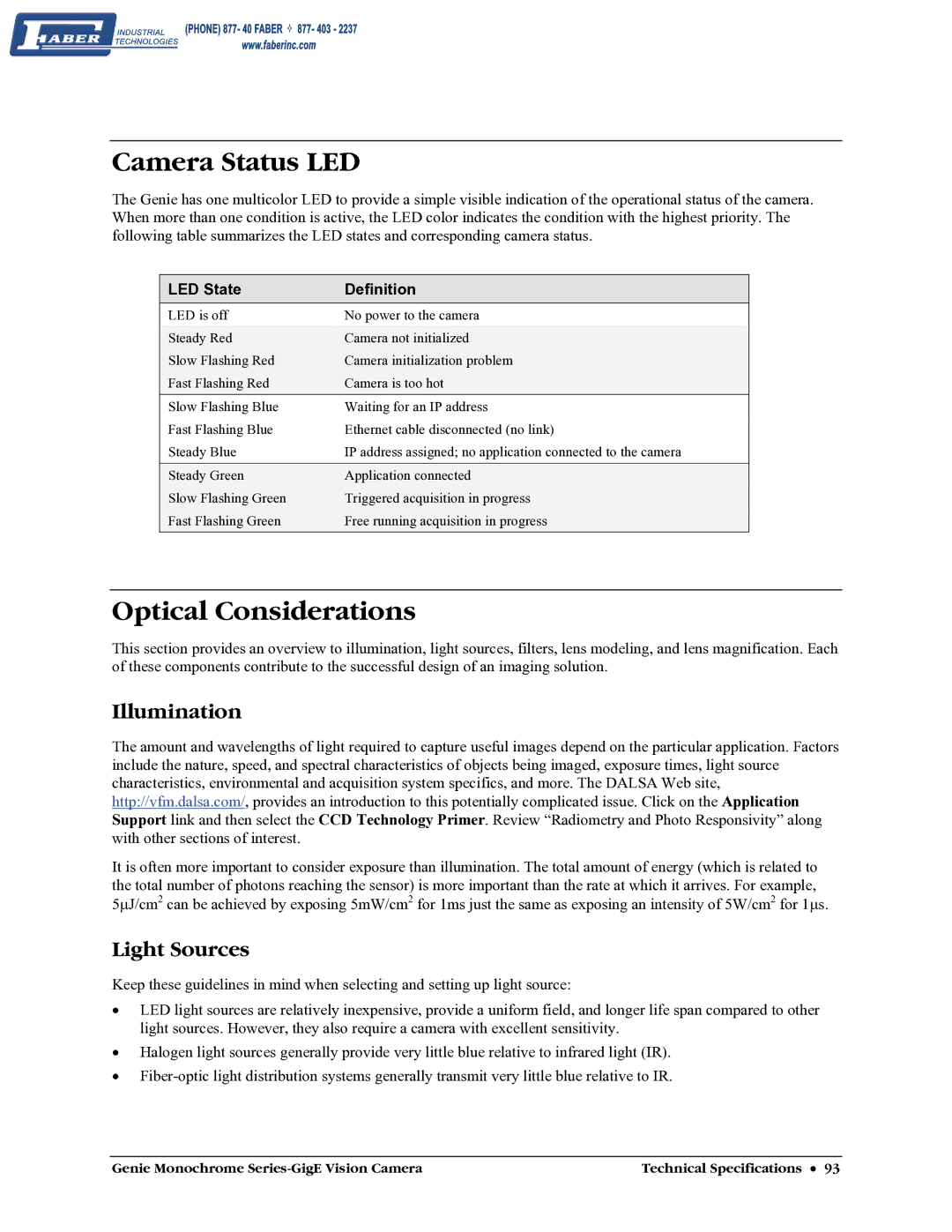
Camera Status LED
The Genie has one multicolor LED to provide a simple visible indication of the operational status of the camera. When more than one condition is active, the LED color indicates the condition with the highest priority. The following table summarizes the LED states and corresponding camera status.
LED State | Definition |
LED is off | No power to the camera |
|
|
Steady Red | Camera not initialized |
Slow Flashing Red | Camera initialization problem |
Fast Flashing Red | Camera is too hot |
Slow Flashing Blue | Waiting for an IP address |
Fast Flashing Blue | Ethernet cable disconnected (no link) |
Steady Blue | IP address assigned; no application connected to the camera |
|
|
Steady Green | Application connected |
Slow Flashing Green | Triggered acquisition in progress |
Fast Flashing Green | Free running acquisition in progress |
|
|
Optical Considerations
This section provides an overview to illumination, light sources, filters, lens modeling, and lens magnification. Each of these components contribute to the successful design of an imaging solution.
Illumination
The amount and wavelengths of light required to capture useful images depend on the particular application. Factors include the nature, speed, and spectral characteristics of objects being imaged, exposure times, light source characteristics, environmental and acquisition system specifics, and more. The DALSA Web site, http://vfm.dalsa.com/, provides an introduction to this potentially complicated issue. Click on the Application Support link and then select the CCD Technology Primer. Review “Radiometry and Photo Responsivity” along with other sections of interest.
It is often more important to consider exposure than illumination. The total amount of energy (which is related to the total number of photons reaching the sensor) is more important than the rate at which it arrives. For example,
5μJ/cm2 can be achieved by exposing 5mW/cm2 for 1ms just the same as exposing an intensity of 5W/cm2 for 1μs.
Light Sources
Keep these guidelines in mind when selecting and setting up light source:
•LED light sources are relatively inexpensive, provide a uniform field, and longer life span compared to other light sources. However, they also require a camera with excellent sensitivity.
•Halogen light sources generally provide very little blue relative to infrared light (IR).
•
Genie Monochrome | Technical Specifications • 93 |
